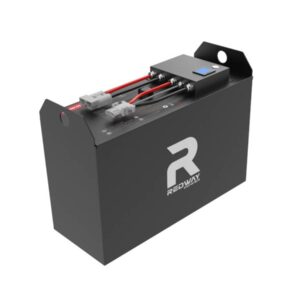How to give a battery more life?
Extend battery lifespan by avoiding extreme charge states (0% or 100%), maintaining 20%-80% charge cycles, and minimizing heat exposure. Use manufacturer-approved chargers, enable optimized charging modes, and calibrate monthly. Lithium-ion batteries degrade faster when stressed by high voltages or temperatures—proactive management can boost longevity by 30-50%.
How to Maximize Forklift Battery Lifespan
Why is 20%-80% the optimal charge range?
Keeping lithium-ion batteries between 20%-80% charge reduces electrolyte stress and anode degradation. Full discharges (0%) accelerate cathode wear, while 100% storage causes lithium plating. Pro Tip: Set charging alarms at 80% using smart plugs or built-in phone features.

Lithium-ion cells experience mechanical strain when cycled beyond partial states. At 100% charge, the anode operates at ~4.2V/cell, accelerating electrolyte oxidation. Conversely, discharges below 20% increase internal resistance. For example, a battery cycled between 30-70% retains 95% capacity after 1,000 cycles versus 80% when drained to 0% regularly. Practically speaking, treat your battery like a marathon runner—steady pacing outperforms sprints. Did you know? Tesla vehicles default to 80% charge limits for daily use to preserve pack health.
How does temperature affect battery aging?
Heat above 35°C doubles degradation rates by accelerating side reactions. Cold (<0°C) charging causes metallic lithium deposition, permanently reducing capacity. Store devices in 15-25°C environments for minimal degradation.
Battery chemistry follows the Arrhenius equation—every 10°C temperature rise above 25°C halves cycle life. For instance, gaming phones reaching 45°C during charging lose 40% capacity in 6 months versus 18 months at 30°C. Pro Tip: Remove phone cases during fast charging and avoid direct sunlight. A real-world analogy: Batteries age like ice cream—left in heat, they melt (degrade) faster. Transitional solutions include using thermal-regulated charging stations or scheduling charges during cooler hours.
| Condition | Capacity Loss/Year | Cycle Life |
|---|---|---|
| 25°C, 20-80% | 8% | 1,200 |
| 35°C, 0-100% | 25% | 400 |
Do charging habits impact longevity?
Partial charging beats full cycles—10 small charges from 40% to 70% cause less wear than one 0-100% cycle. Avoid “voltage cliffs” by preventing deep discharges during heavy usage.
Lithium-ion batteries prefer shallow discharges. Each full cycle (0-100%) counts as 1 cycle, but five 20% partial cycles equal 1 full cycle wear. For example, charging from 50% to 80% three times daily adds 0.9 equivalent cycles versus 1 cycle for a full drain/charge. Beyond convenience, this reduces crystalline growth on electrodes. Pro Tip: Charge during lunch breaks instead of overnight—keeps batteries in the sweet spot without prolonged 100% exposure.
Battery Expert Insight
FAQs
Is wireless charging worse for batteries?
Yes—inductive charging generates 30% more heat than wired methods, accelerating degradation. Use it sparingly and remove metallic objects between charger/device.
Can I revive a swollen battery?
No—swelling indicates internal gas buildup from electrolyte decomposition. Immediately power down and replace to avoid rupture risks.
